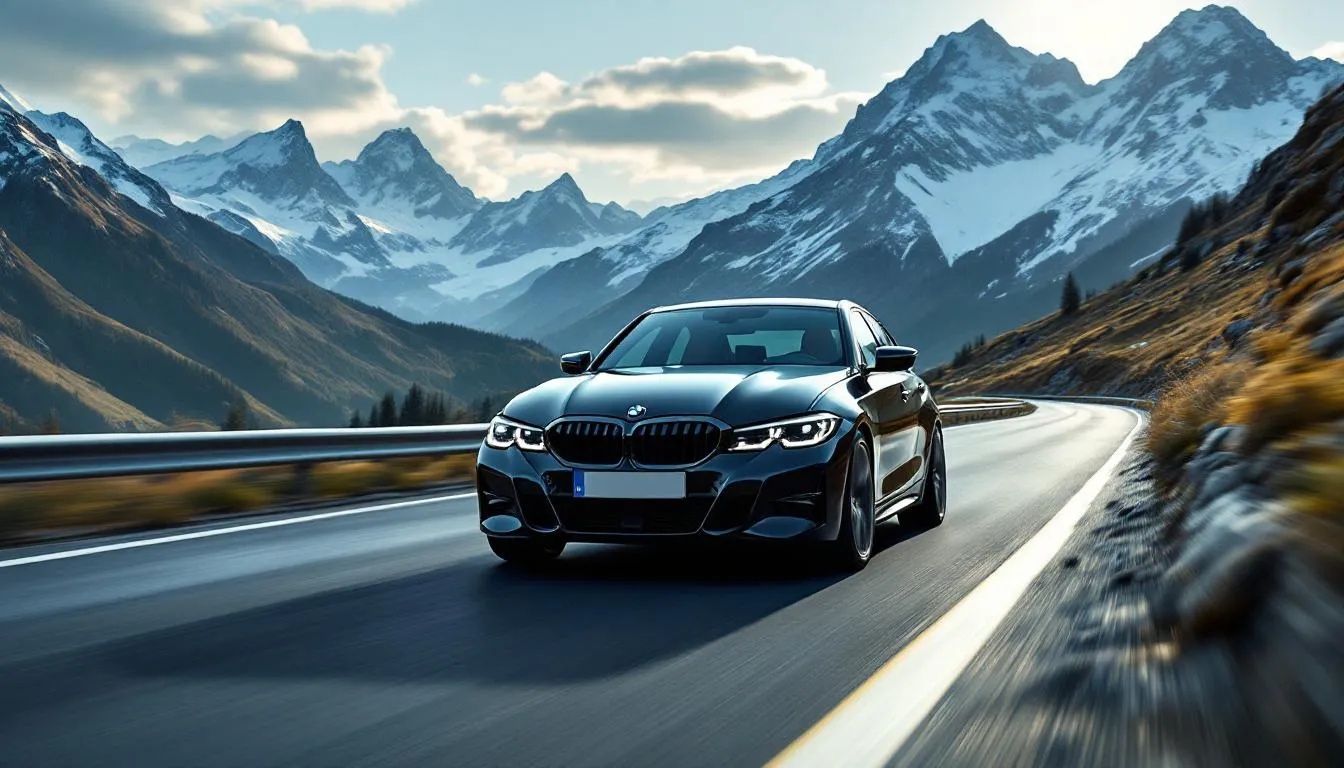Purchasing a used BMW 3 Series can be a double-edged sword. On one hand, it offers an impressive blend of luxury, performance, and prestige – on the other hand, it can also present a real challenge in terms of maintenance costs and reliability. This guide focuses on models from 2010 to 2020 and highlights what you should particularly pay attention to in Switzerland.
1. BMW 3 Series (E90) from 2010 – The Classic with Driving Pleasure
The BMW 3 Series E90 from 2010 is considered by many enthusiasts to be the epitome of the classic BMW driving experience. Known for its sporty driving dynamics and solid construction, this 3 Series remains an attractive offer on the used car market.
Technical Specifications and Performance
The E90 offers a wide range of engine options, including the popular 2.0-liter petrol engine and the powerful 3.0-liter diesel. Fuel consumption typically ranges between 6.5 and 9 liters per 100 km, depending on the engine.
- Fuel Consumption: 6.5-9.0 liters/100km
- Power: 143-306 HP
- Typical Mileage: 150,000-250,000 km
Reliability and Common Issues
The E90 is known for its durability, but it should be thoroughly inspected before purchase, particularly regarding suspension components and electrical systems. Common issues include defective turbochargers in diesel engines and worn timing chains in petrol engines.
Prices and Maintenance Costs
Prices for a well-maintained E90 start at around 8,000 CHF and can reach up to 15,000 CHF depending on condition and features. Annual maintenance costs are approximately 1,500 CHF, though this varies significantly with usage.
- Purchase Price: 8,000-15,000 CHF
- Annual Maintenance Costs: approx. 1,500 CHF
- Insurance: approx. 1,200 CHF/year
Switzerland-Specific Aspects
In Switzerland, the E90 is particularly popular in cantons like Zurich and Aargau. Thanks to its balanced chassis, it is well-suited for alpine roads, but the condition of the brakes and tires should be specifically checked for winter driving.
2. BMW 3 Series (F30) from 2012 – Advanced Technology and Efficiency
The BMW 3 Series F30, introduced in 2012, sets standards in terms of modern technology and efficiency. With enhanced safety features and a focus on comfort, it is an attractive choice for families and commuters.
Technical Specifications and Performance
The F30 is known for its more efficient engines, including the 320d, often considered the perfect balance between performance and consumption. Typical fuel consumption ranges from 5 to 7 liters per 100 km.
- Fuel Consumption: 5-7 liters/100km
- Power: 184-320 HP
- Typical Mileage: 100,000-200,000 km
Reliability and Common Issues
The F30 has proven to be relatively reliable, though issues with electronics and the cooling system are not uncommon. A thorough vehicle inspection can uncover potential weaknesses early on.
Prices and Maintenance Costs
Used F30 models are available from about 12,000 CHF. Higher trim levels can cost up to 20,000 CHF. Average maintenance costs amount to approximately 1,700 CHF annually.
- Purchase Price: 12,000-20,000 CHF
- Annual Maintenance Costs: approx. 1,700 CHF
- Insurance: approx. 1,300 CHF/year
Switzerland-Specific Aspects
The F30 is popular for its comfort on longer motorway journeys, which are typical for commuters in Switzerland. Thanks to its modern assistance systems, it offers safety on winding mountain roads.
Comparison Table of Top Candidates
It is crucial to compare the different models in terms of performance, reliability, and costs. The E90 offers a classic driving experience, while the F30 scores with technical finesse. Both models have their specific advantages and challenges.
Conclusion and Purchase Recommendation
For enthusiasts who desire driving pleasure and a classic BMW experience, the E90 is an excellent choice. However, those who value modern technology and efficiency should consider the F30. Regardless of the model, it is advisable to have an independent vehicle inspection carried out and to thoroughly check the service history to avoid unpleasant surprises. Invest time in a well-informed decision-making process – your future driving pleasure will thank you for it!
